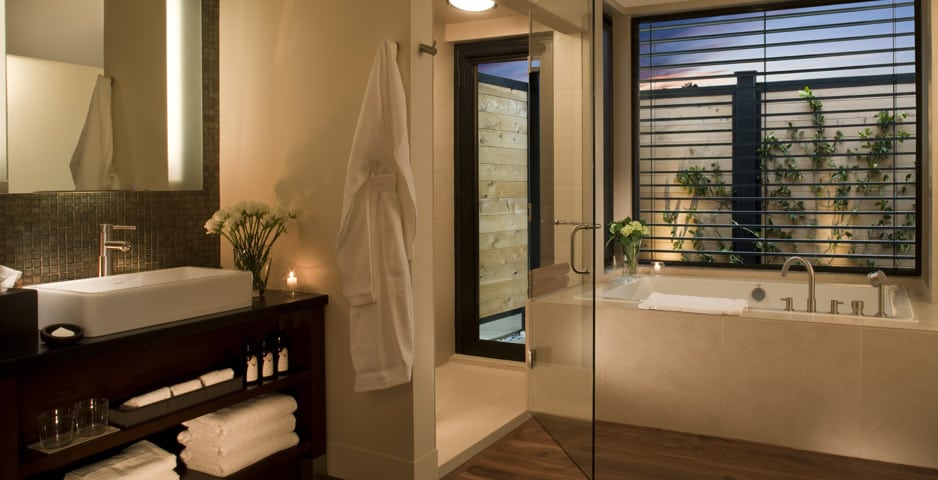Skift Take
In a new era of experiential marketing, hotel groups like Benchmark Hospitality are finding power in storytelling to celebrate both employee and guest relationships.
Established over three decades ago, Benchmark Hospitality International (BHI) operates almost 40 individually-owned hotels, resorts and conference venues in the U.S., Caribbean and Japan.
The Benchmark Resorts & Hotels flag flies over hotels more oriented toward business travelers and those in subsidiary markets, while its two-year-old sister brand, Personal Luxury Resorts & Hotels, is a collection of high-end boutique urban hotels and destination resorts from Seattle to Miami.
Chances are, unless you’re in the hospitality industry, you haven’t heard of either.
Last week, newly appointed BHI President/CEO Alex Cabañas, son of founder Burt Cabañas, invited the New York travel press to lunch at Thomas Keller’s Per Se restaurant to showcase BHI’s vision and promote the two brands. In a way it was like a coming out party. Speaking with the other writers, many of them knew Bardessono in Napa, Hotel 1000 in Seattle, and Villas of Grand Cypress in Orlando, but few of them were as familiar with the Benchmark or Personal Luxury operations behind them.
Previously, the overall corporate strategy has been to market the individual hotels as standalone properties and let them carry the brand. However, there’s been a shift of late as BHI is attempting to differentiate the group as a whole with a unified brand voice in the marketplace.
Creating a Brand Voice
For Cabañas & Co., that differentiator relies a lot on experiential storytelling.
Surprisingly, so did the press luncheon. In fact, none of the experienced travel writers in the room we spoke to had ever really attended a press event like this before. Instead of running through product updates, brand pillars/positioning and development goals, Cabañas began his remarks with an old black and white photo on the monitors of his father as a school boy in Cuba.
“So that’s my dad, he started the company 33 years ago having very much an attitude that nothing is impossible,” said Cabañas. He explained how his father and mother met in the States after immigrating from Cuba with almost no resources. And then over the years, Burt Cabañas built the company up without much fanfare while earning the respect of hotel owners and business/conference travelers based on fiscal responsibility and deft management.
Acknowledging that few of the leisure travel writers in the room knew about Benchmark, the younger Cabañas explained how the company has grown from one man in 1980 to over 6,000 employees today. He asserted that the time has come to grow the brand publicly while developing new hotel partnerships in new markets, such as Curaçao last year and an adaptive reuse project in Knoxville opening this fall.
“We built our brand in reverse,” said Cabañas. “Now we’re really wanting to tell the world that we’re this collection of great hotels…. It’s really a celebration of collective individualism, and it’s best told through stories.”
Experiential Travel as Differentiator
That particular strategy comes with significant risk. There’s a rampant overuse in hospitality and tourism marketing of three phrases and themes in particular: experiential travel, authentic travel, and service as a differentiator.
But the low-tech, unassuming and familial vibe of Cabañas’ presentation backed up with testimonial stories, combined with the ultra-exclusive setting inside one of the country’s best restaurants, had the desired effect.
During his presentation, Cabañas displayed only three images on the monitors. The second photo was of a young autistic boy who requires a special tent over his bed because he’s prone to get up in the night and walk around in the dark, potentially hurting himself. The boy is also sometimes loud at night so the family requires a more private room, for which they’re prepared to pay $1,000 a night.
Two luxury hotels in Napa denied the family’s booking and request to set up the tent, before they were welcomed at Bardessono. The mother of the son wrote to Bardessono: “It made us feel wanted, appreciated and hopeful that other places will accept our family business.”
Over half of Cabañas’ presentation focused on other similar stories from the various hotels. On two occasions, lost stuffed animals were returned to families along with a photo book of those animals enjoying the spa and pool, checking a guest in at the front desk, etc., to show the children that their beloved friends were in good hands while they were separated.
Cabañas ended with a photo of his two sons and a story about one particular day when he was leaving on a business trip. He basically described how if he was going to be leaving his two sons to travel for work, it had better be for a company worthy of that sacrifice.
“Storytelling is the great elixir,” said Cabañas, explaining that’s how the company inspires executives and employees to accomplish that goal. “Every meeting should start with a story, every event should start with a story, every stand-up report should start with a story, and every manager should have a story in their pocket.”
Greg Oates covers hotel/tourism development and travel brand media. He has toured over 1,000 hotels in 50+ countries. email / twitter
Have a confidential tip for Skift? Get in touch
Tags: benchmark, branding, marketing
Photo credit: A room at Bardessono, a Benchmark property Bardessono Hotel
